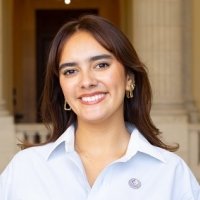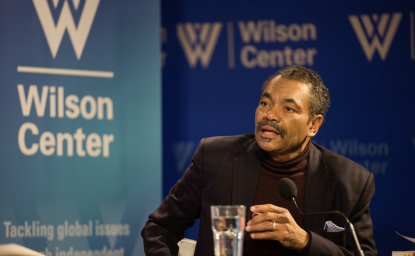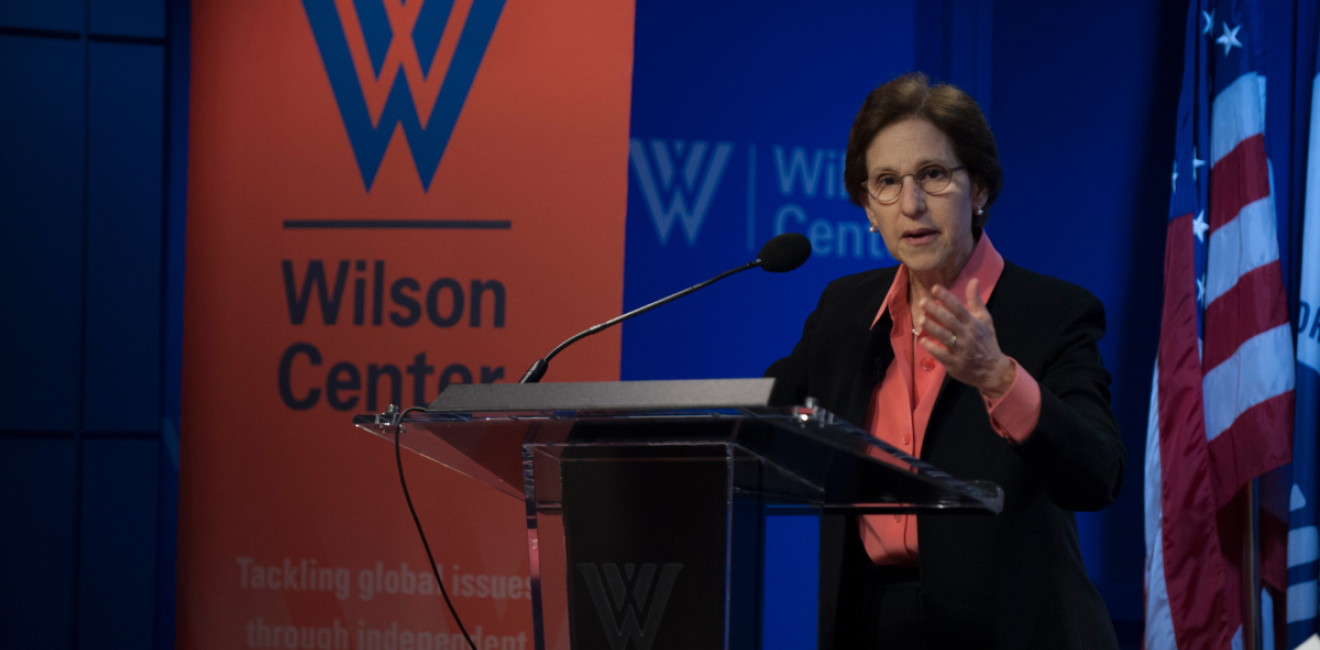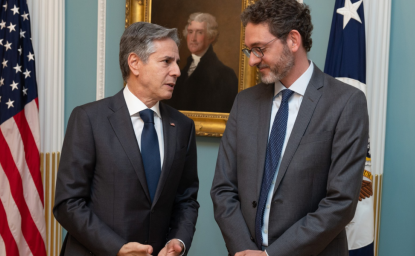
A blog of the Wilson Center
Cynthia J. Arnson, a distinguished fellow and former director of the Wilson Center’s Latin America Program, has dedicated her career to examining the intersection of governance, security, and economic development in Latin America. Her decades-long work has influenced policymakers, scholars, and practitioners addressing the region’s most pressing challenges.
Growing up in Cleveland, Ohio, Arnson’s early interest in social engagement was sparked during her studies at Wesleyan University in Connecticut. Initially a photography major, her worldview changed after a formative year abroad in France, where she experienced the complexities of International Relations firsthand. “I was exposed to intense anti-American sentiment during the Vietnam War, and it opened my eyes to foreign policy in ways I hadn’t considered before,” she reflects.
Upon her return, Arnson switched her major to government, setting the stage for her future career. A subsequent internship in Congress during the Carter administration introduced her to the intersection of policy and human rights, particularly in the Western Hemisphere. Witnessing the administration’s focus on human rights as a cornerstone of foreign policy, and meeting Chilean exiles fleeing military dictatorship, solidified her interest in Latin America and the transformative power of governance.
Arnson joined the Wilson Center in 1994, during a time of optimism following the end of the Cold War and the region’s transition toward democracy. Her tenure coincided with significant changes in Latin America, including the rise of neoliberal economic policies and the challenges of post-conflict reconstruction in Central America. She led efforts to explore how democratic transitions could foster inclusive societies while addressing economic disparities.
“The Wilson Center has always been a place to connect scholarship with public policy,” Arnson explains. “It’s not an ivory tower institution but one that bridges the gap between academic insight and real-world application.” Under her leadership, the Latin America Program became a hub for dialogue on democratic transitions, peace processes, and economic reform. Through convenings, reports, and books, Arnson facilitated discussions that brought together top scholars, practitioners, and policymakers from across the hemisphere.
One particularly gratifying moment came during a visit to Colombia, where she met a young practitioner working with the United Nations Verification Mission for the Colombian peace agreement. “They told me they had read my book and that it had shaped their thinking on these issues,” she recalls. “It’s moments like that which remind you of the lasting impact scholarly work can have.”
Today, Arnson’s work focuses on the troubling trend of democratic backsliding in Latin America. She emphasizes that dissatisfaction with democracy stems largely from governments’ inability to address core issues such as economic inequality and public insecurity. “The stagnation of economic growth and the rise of crime and organized crime during the pandemic have eroded faith in democratic institutions,” she says. This has fueled the appeal of populist outsiders like Nayib Bukele in El Salvador and Javier Milei in Argentina, as citizens seek alternatives to traditional leadership.
Arnson highlights the interconnected nature of these challenges, noting that insecurity, organized crime, and economic hardship are deeply entwined. The pandemic exacerbated these issues, with criminal organizations exploiting vulnerable populations while governments struggled to respond.
Throughout her career, Arnson has devoted significant attention to Colombia, a country she has studied extensively for more than 30 years. Her work on the nation’s peace process and conflict resolution has been particularly impactful, offering comparative insights into the challenges of transitioning from armed conflict to democratic governance. At the Wilson Center, she led efforts to produce seminal works on peacebuilding, many of which remain influential today.
Teaching at Johns Hopkins University’s School of Advanced International Studies (SAIS), Arnson draws on her research to educate students about the complexities of governance and conflict resolution in Latin America. Her courses provide a nuanced understanding of the region, blending theoretical frameworks with real-world case studies.
Arnson looks back fondly on her time at the Wilson Center, particularly the in-person convenings that were a hallmark of the institution before the pandemic. “The Wilson Center was a place where you could bring together top researchers and practitioners from across the hemisphere,” she says. “These interactions went beyond panels; they fostered personal and professional relationships that enriched the field.”
Looking ahead, Arnson emphasizes the importance of understanding the broader trends shaping Latin America. “I hope to provide people with a more refined understanding of the region,” she says. “It’s about giving them the tools to make sense of the daily onslaught of news and connect it to larger patterns.”
Arnson continues to focus on providing actionable insights for policymakers, scholars, and students alike. Her work serves as a bridge between academic research and practical solutions, tackling the region’s most pressing challenges with nuance and rigor, leaving a legacy of informed scholarship and practical impact.
Author


Latin America Program
The Wilson Center’s prestigious Latin America Program provides non-partisan expertise to a broad community of decision makers in the United States and Latin America on critical policy issues facing the Hemisphere. The Program provides insightful and actionable research for policymakers, private sector leaders, journalists, and public intellectuals in the United States and Latin America. To bridge the gap between scholarship and policy action, it fosters new inquiry, sponsors high-level public and private meetings among multiple stakeholders, and explores policy options to improve outcomes for citizens throughout the Americas. Drawing on the Wilson Center’s strength as the nation’s key non-partisan policy forum, the Program serves as a trusted source of analysis and a vital point of contact between the worlds of scholarship and action. Read more

Explore More in Scholar & Alumni Spotlight
Browse Scholar & Alumni Spotlight
Olufemi Vaughan: Shaping Governance Through Scholarship and Dialogue

Dr. Maurice Jackson: The Sounds of Resistance Throughout History


